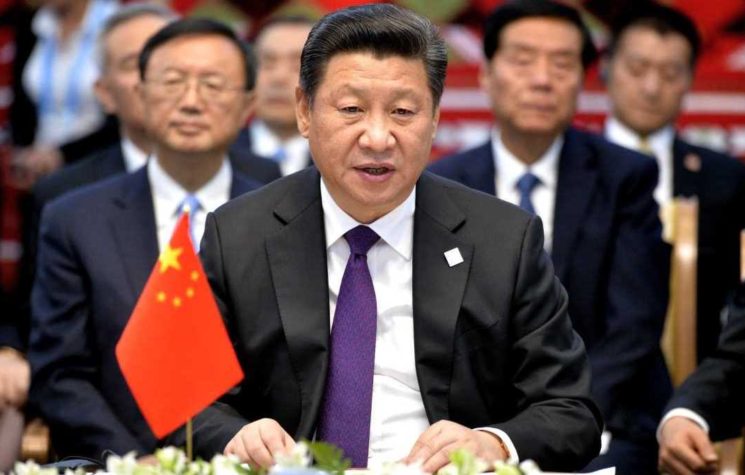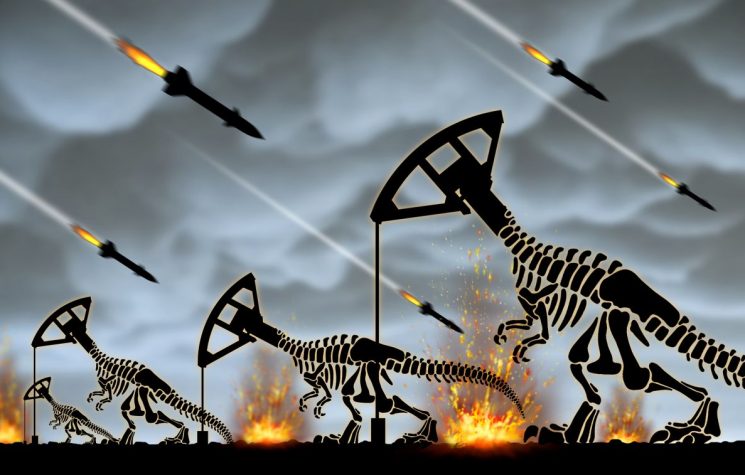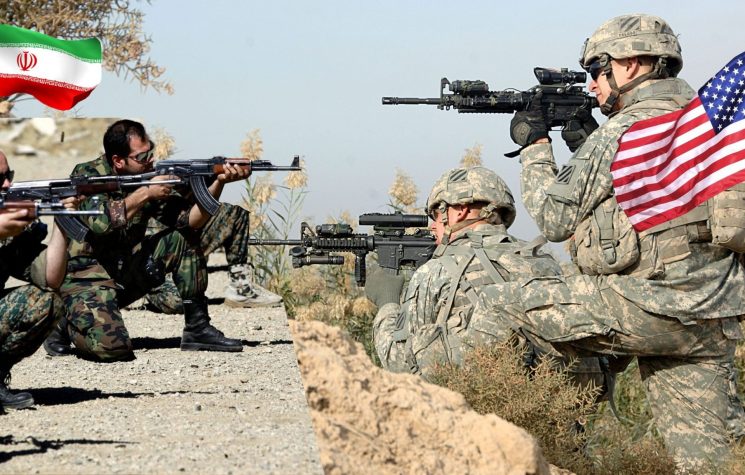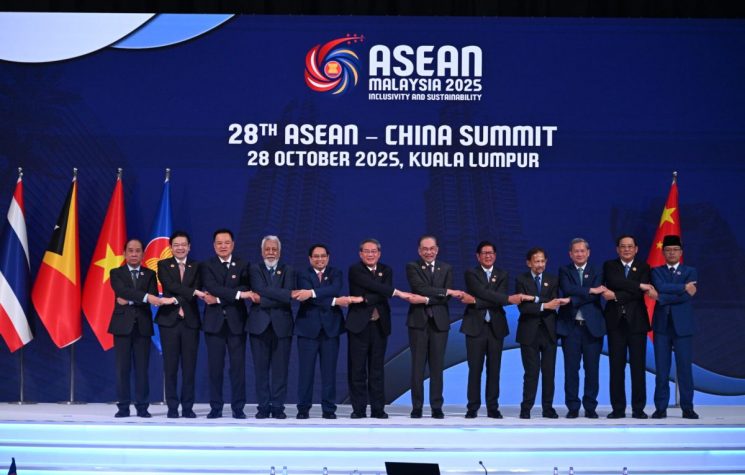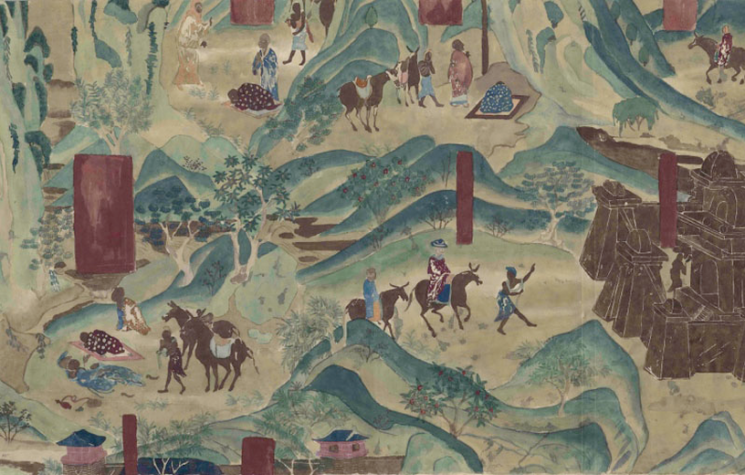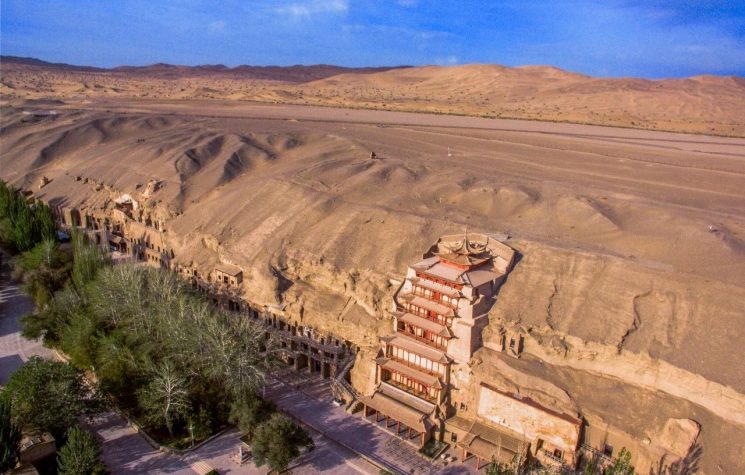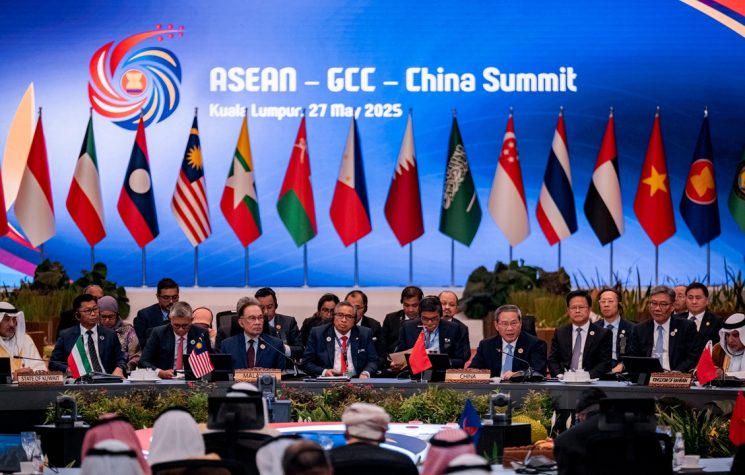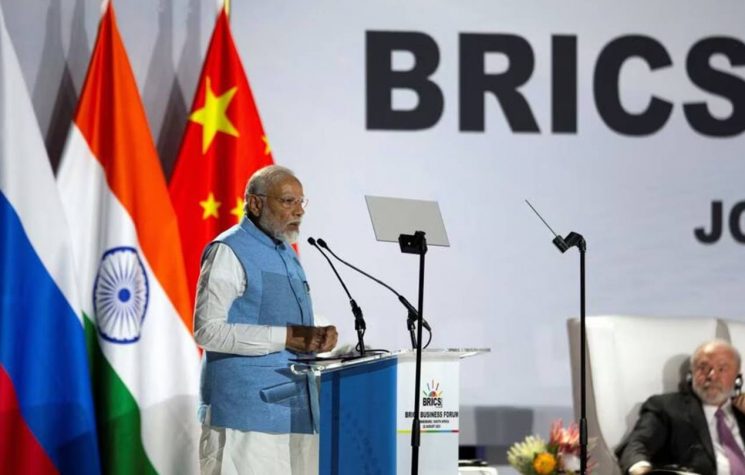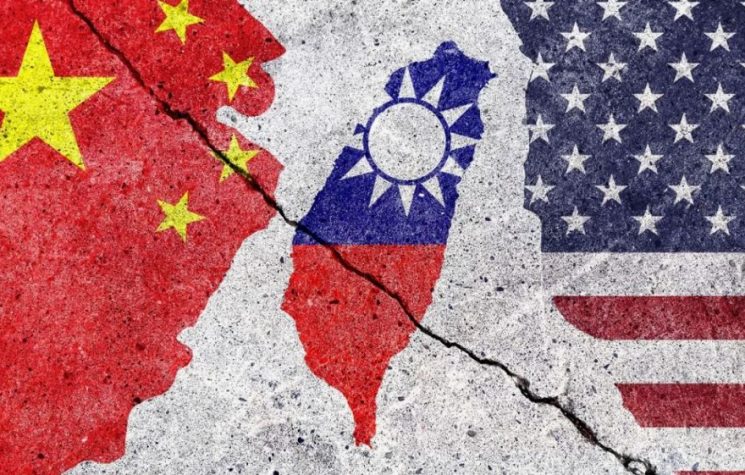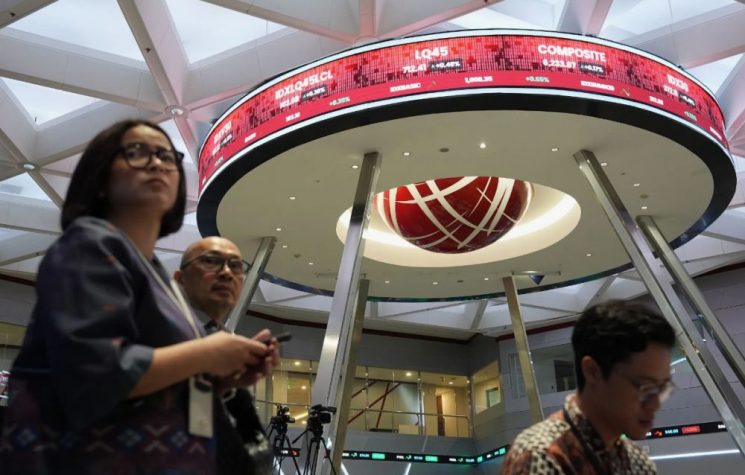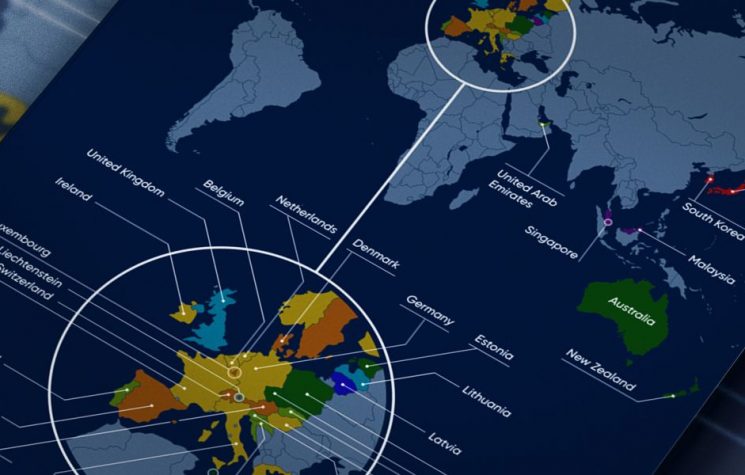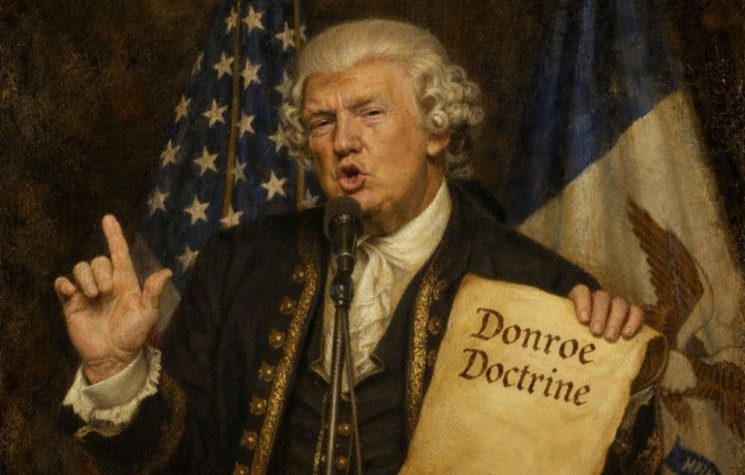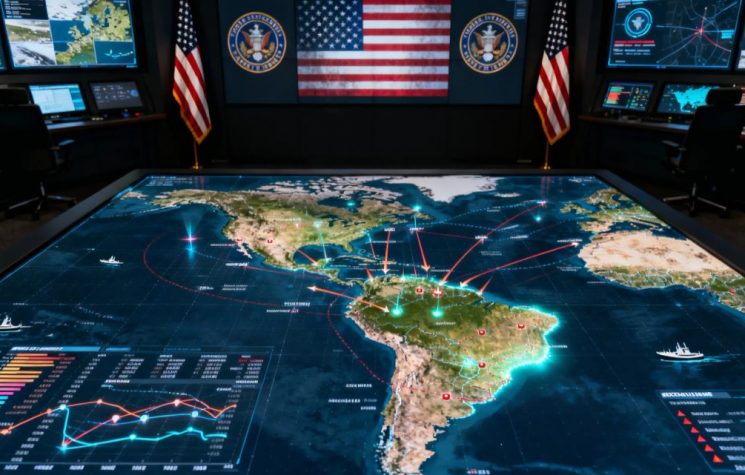Compared the great initiatives taken on behalf of freedom and anti colonialism throughout the past 260 years, today’s America appears to be a strange and foolish creature running roughshod over the dignity of people and nations in a race for mass nuclear extermination.
Such is the image projected by Mike Pompeo’s ranting anti-China attacks or the relentless demonization of Russia sweeping across mainstream media ever day- both nations who have repeatedly called for cooperation and friendship with the USA. If it were simply belligerent words then we could brush off these childish attacks as mere foolish rhetoric, but sadly these words are backed by extraordinarily dangerous action. From escalating military maneuvers on Russia’s border, to belligerent military expansion in China’s backyard, everywhere one looks, we find the same lemming-like commitment to playing a nuclear game of chicken in the hopes of psychologically breaking the Multipolar Alliance.
However, as China’s Ambassador Cui Tiankai recently stated, “China and the USA need to recapture the spirit of cooperation from WWII and join hands to confront our common enemies in the new era.”
I couldn’t agree more.
As the Ambassador invoked the spirit of Lincoln citing the beautiful quote: “the best way to predict the future is to create it”, I think it’s wise to revisit the two opposing global policy options the USA had available to it at the turn of the last century while the Civil War hero William McKinley still presided in the office of the presidency in 1901.
At this crucial moment in world history, it was still undetermined whether America would hold on to its anti-imperial traditions or slip into the trap of a new imperial identity.
Monroe Doctrine or Empire?
As Martin Sieff eloquently laid out in his recent article, President McKinley himself was an peacemaker, anti-imperialist of a higher order than most people realize. McKinley was also a strong supporter of two complementary policies: 1) Internally, he was a defender of Lincoln’s “American system” of protectionism, internal improvements and black suffrage and 2) Externally, he was a defender of the Monroe Doctrine that defined America’s anti-imperial foreign policy since 1823.

The Monroe Doctrine’s architect John Quincy Adams laid out this principle eloquently on July 4, 1821:
“After fifty years the United States has, without a single exception, respected the independence of other nations, while asserting and maintaining her own.
That the United States does not go abroad in search of monsters to destroy. She is the well-wisher to the freedom and independence of all. She is the champion and vindicator only of her own.
That by involving itself in the internal affairs of other nations, the United States would destroy its own reason of existence; the fundamental maxims of her policy would become, then, no different than the empire America’s revolution defeated. It would be, then, no longer the ruler of itself, but the dictator of the world.”
America’s march is the march of mind, not of conquest.
Colonial establishments are engines of wrong, and that in the progress of social improvement it will be the duty of the human family to abolish them”.

It was an aging John Quincy Adams whom a young Abraham Lincoln collaborated with in ending the imperial Mexican-American war under Wall Street stooge James Polk in 1846. When Adams died in 1848, Lincoln picked up the torch he left behind as the London-directed “proto deep state” of the 19th century worked to dissolve the republic from within. The foreign policy conception laid out by Adams ensured that America’s only concern was “staying out of foreign imperial entanglements” as Washington had earlier warned and keeping foreign imperial interests out of the Americas. The idea of projecting power onto the weak or subduing other cultures was anathema to this genuinely American principle.
A major battle which has been intentionally obscured from history books took place in the wake of Lincoln’s murder and the re-ascension of the City of London-backed slave power during the decades after the Union victory of 1865. On the one hand America’s role in the emerging global family of nations was being shaped by followers of Lincoln who wished to usher in an age of win-win cooperation. Such an anti-Darwinian system which Adams called “a community of principle” asserted that each nation had the right to sovereign banking controls over private finance, productive credit emissions tied to internal improvements with a focus on continental (rail/road) development, industrial progress and full spectrum economies. Adherants of this program included Russia’s Sergei Witte and Alexander II, Germany’s Otto von Bismarck, France’s Sadi Carnot, and leading figures within Japan’s Meiji Restoration.
On the other hand, “eastern establishment families” of the USA more loyal to the gods of money, hereditary institutions and the vast international empire of Britain saw America’s destiny tied to an imperial global partnership with the Mother country. These two opposing paradigms within America have defined two opposing views of “progress”, “value”, “self-interest” and “law” which have continued to shape the world over 150 years later.
William Gilpin vs Alfred Mahan: Two Paradigms Clash
A champion of the former traditionally American outlook who rose to the international scene was William Gilpin (1813-1894). Gilpin hailed from a patriotic family of nation builders whose patriarch Thomas Gilpin was a close ally of Benjamin Franklin and leading member of Franklin’s Philosophical Society. William Gilpin was famous for his advocacy of America’s trans continental railway whose construction he proselytized as early as 1845 (it was finally begun by Lincoln during the Civil War and completed in 1869 as I outlined in my previous paper How to Save a Dying Republic [LINK]).
In his thousands of speeches and writings, Gilpin made it known that he understood America’s destiny to be inextricably tied to the ancient civilization of China- not to impose opium as the British and their American lackies were want to do, but to learn from and even emulate!
In 1852, Gilpin stated:
“Salvation must come to America from China, and this consists in the introduction of the “Chinese constitution” viz. the “patriarchal democracy of the Celestial Empire”. The political life of the United States is through European influences, in a state of complete demoralization, and the Chinese Constitution alone contains elements of regeneration. For this reason, a railroad to the Pacific is of such vast importance, since by its means the Chinese trade will be conducted straight across the North American continent. This trade must bring in its train Chinese civilization. All that is usually alleged against China is mere calumny spread purposefully, just like those calumnies which are circulated in Europe about the United States”.
With Lincoln’s 1861 presidential victory, Gilpin became Lincoln’s bodyguard and ensured the president survived his first assassination attempt en route to Washington from Illinois. During the Civil War, Gilpin was made Colorado’s first Governor where he successfully stopped the southern power from opening up a western front during the war of secession (applying Lincoln’s greenback system to finance his army on a state level) and winning the “Battle of Glorieta Pass”, thus saving the union.
After the war Gilpin became a leading advocate of the internationalization of the “American system of political economy” which Lincoln applied vigorously during his short-lived presidency. Citing the success of Lincoln’s system, Gilpin said: “No amount of argument will make America adopt old world theories… To rely upon herself, to develop her own resources, to manufacture everything that can possibly be manufactured within her territory- this is and has been the policy of the USA from the time of Alexander Hamilton to that of Henry Clay and thence to our own days”.
Throughout his speeches Gilpin emphasizes the role of a U.S.-Russia alliance: “It is a simple and plain proposition that Russia and the United States, each having broad, uninhabited areas and limitless undeveloped resources, would by the expenditure of 2 or 3 hundred millions apiece for a highway of the nations threw their now waste places, add a hundredfold to their wealth and power and influence”
And seeing in China’s potential the means to re-enliven the world- including the decadent and corrupt culture of Europe: “In Asia a civilization resting on a basis of remote antiquity has had, indeed, a long pause, but a certain civilization- although hitherto hermetically sealed up has continued to exist. The ancient Asiatic colossus, in a certain sense, needed only to be awakened to new life and European culture finds a basis there on which it can build future reforms.”
In opposition to the outdated British controls of “chock points” on the seas which kept the world under the clutches of the might of London, Gilpin advocated loudly for a system of internal improvements, rail development, and growth of the innate goodness of all cultures and people through scientific and technological progress. Once a global system of mutual development of rail were established, Gilpin stated “in the shipment of many kinds of raw and manufactured goods, it will largely supersede the ocean traffic of Great Britain, in whose hands is now carrying the trade of the world.”
Gilpin’s vision was most clearly laid out in his 1890 magnum opus “The Cosmopolitan Railway” which featured designs for development corridors across all continents united by a “community of principle”.
Echoing the win-win philosophy of Xi Jinping’s New Silk Road today, Gilpin stated:
“The cosmopolitan railway will make the whole world one community. It will reduce the separate nations to families of our great nation… From extended intercommunication will arise a wider intercourse of human ideas and as the result, logical and philosophical reciprocities, which will become the germs for innumerable new developments; for in the track of intercommunication, enterprise and invention invariably follow and whatever facilitates one stimulates every other agency of progress.”
Mahan Derails America’s Anti-Imperial Identity
Alfred Thayer Mahan (1840-1914) represented an opposing paradigm which true American statesmen like Lincoln, Secretary of State James Blaine, William Seward, President Grant, William Garfield, and McKinley detested. Sadly, with McKinley’s murder (run by an anarchist ring with ties to British Intelligence) and the rise of Teddy Roosevelt in 1901, it was not Gilpin’s but rather Mahan’s worldview which became the dominant foreign policy doctrine for the next 120 years (despite a few brief respites under FDR and JFK).
Mahan is commonly credited for being a co-founder of modern geopolitics and an inspiration for Halford Mackinder. Having graduated from West Point’s naval academy in 1859, Mahan soon became renowned as a total failure in actual combat having crashed warships repeatedly into moving and stationary objects during the Civil War. Since reality was not his forte, Mahan focused his post-war career on Ivory tower theorizing gushing over maps of the world and fawning over Britain’s power as a force of world history.
His “Influence of Sea Power Upon History 1660-1783 published in the same year that Gilpin published his Cosmopolitan Railway (1890) was a total break from the spirit of win-win cooperation that defined America’s foreign policy. According to the Diplomat, this book soon “became the bible for many navies around the world” with the Kaiser of Germany (now released from the influence of the great rail-loving statesman Otto von Bismarck whom he fired in 1890) demanding all of his offers read. Later Teddy Roosevelt ordered copies for every member of Congress. In Mahan’s book, the geopolitician continuously asserts his belief that it is America’s destiny to succeed the British Empire.

Taking the British imperial definition of “commerce” which uses free trade as a cover for the military dominance of weak nations (open borders and turning off protectionism simply makes a people easier to rob), Mahan attempts to argue that America need not continue to adhere to “outdated” habits like the Monroe doctrine since the new order of world empires demands America stay relevant in a world of sea power and empire. Mahan writes: “The advance of Russia in Asia, in the division of Africa, in the colonial ambitions of France and in the British idea of Imperial Federation, now fast assuming concrete shape in practical combined action in South Africa” demands that the USA act accordingly.
Attempting to refute the “outdated habits” of rail development which consume so many foolish statesmen around the globe, Mahan states: “a railway competes in vain with a river… because more facile and copious, water traffic is for equal distances much cheaper and because cheaper, more useful”. Like those attacking today’s Belt and Road Initiative, the power of railways is that their returns are not measurable by simple monetary terms, but are rather QUALITATIVE. The long-term construction of rail systems not only unite divided people, increase manufacturing and industrial corridors but also induce closer powers of association and interchange between agriculture and urban producers. These processes uplift national productive powers building full spectrum economies and also a culture’s capacity for creative thought.
The attempt made to justify sea traffic merely because “larger amounts of goods can be shipped” is purely quantitative and monetaristic sophistry devoid of any science of real value.
While Gilpin celebrates the successful awakening of China and other great nations of the world, in the Problem of Asia (1901) Mahan says: “It is scarcely desirable that so vast a proportion of mankind as the Chinese constitute should be animated by but one spirit”. Should China “burst her barriers eastward, it would be impossible to exaggerate the momentous issues dependant upon a firm hold of the Hawaiian islands by a great civilized maritime power.”
Mahan’s adherence to social Darwinism is present throughout his works as he defines the political differences of the 3 primary branches of humanity (Teutonic, Slavic and Asiatic) as purely rooted in the intrinsic inferiority or superiority of their race saying: “There are well recognized racial divergencies which find concrete expression in differences equally marked of political institution, of social progress and of individual development. These differences are… deep seated in the racial constitution and partly the result of the environment”. Mahan goes onto restate his belief that unlike the superior Teutonics “the Oriental, whether national or individual does not change” and “the East does not progress”.
Calling China a carcass to be devoured by an American eagle, Mahan writes: “If life departs, a carcass can be utilized only by dissection or for food; the gathering to it of the eagles is a natural law, of which it is bootless to complain… the onward movement of the world has to be accepted as a fact.”
Championing an Anglo American alliance needed to subdue and “civilize” China as part of the post-Boxer Rebellion, Mahan says “of all the nations we shall meet in the East, Great Britain is the one with which we have by far the most in common in the nature of our interests there and in our standards of law and justice”.
In case there was any doubt in the minds of Mahan’s readers as to the MEANS which America should assert its dominance onto China, Mahan makes clear his belief that progress is caused by 1) force and 2) war: “That such a process should be underlain by force… on the part of outside influences, force of opposition among the latter themselves [speaking of the colonial European monarchies racing to carve up China in 1901 -ed] may be regrettable, but it is only a repetition of all history… Every step forward in the march that has opened in China to trade has been gained by pressure; the most important have been the result of actual war.”
A Last Anti-Imperial Push
The chaos induced by the anti-foreigner Boxer Rebellion of 1899 which spread quickly across China resulted a heated battle between imperial and anti-imperial forces in both Russia and the USA. Where Transport Minister Sergei Witte who spearheaded the development of the Trans Siberian rail line (1890-1905) tried to avoid military entanglement, McKinley was busy doing the same.
The boxers soon attacked the Manchurian rail connecting Russia to China by land and Witte succumbed to pressure to finally send in troops. The reformers of China who attempted to modernize with American and Russian assistance under Emperor Kuang Hsu and Li Hung Chang fell from power as total anarchy reigned. The outcome of the Boxer chaos involved the imperial powers of France, Germany and England demanding immense financial reparations, ownership of Chinese territory and mass executions of the Boxers.
While McKinley is often blamed for America’s imperial turn, the reality is just the opposite.
The Spanish-American war begun in 1898 was actually launched unilaterally by Anglophilic racist Theodore Roosevelt who used the 4 hour window he had while Undersecretary of the Navy (while the actual Secretary was out of Washington) to send orders to Captain Dewey of the Pacific fleet to engage in a fight with the Spanish over their Philippine territories. McKinley had resisted the war hawks until that point but found himself finally bending to the momentum. In China, McKinley, like Witte worked desperately to reject taking territory resulting in great fears from the British oligarchy that a U.S.-Russia alliance led by McKinley and Witte was immanent.
The assassination of McKinley on September 18, 1901 catapulted Mahan-loving Vice President Teddy Roosevelt into high office, who enmeshed America into a new epoch of Anglo-American imperialism abroad, a growth of eugenics and segregation at home and the creation of an independent police state agency called the FBI.
As Sieff writes: “Roosevelt devoted his next eight years in the presidency and the rest of his life to integrating the United States and the British Empire into a seamless web of racial imperialist oppression that dominated Latin America, sub-Saharan Africa and Asia and that destroyed the cultural history and heritage of the Native North American nations.”

In Russia, the 1902 Anglo-Japan Treaty led to the disastrous Japan-Russo war of 1905 which devastated the Russian navy, ended the political career of Sergei Witte and threw Russia into chaos leading to the fall of the Romanovs (Czar Nicholas II was the last statesman occupying high office that this author is aware of to have actively promoted the Bering Strait Tunnel rail connection in 1906. It wasn’t until FDR’s Vice President Henry Wallace met with Foreign Minister Molotov in 1942 that the idea resurfaced once more).
While the “open door” rape of the China was attempted by the Anglo-Americans, a fortunate rear guard maneuver orchestrated by another follower of Abraham Lincoln named Sun Yat-sen resulted in a surprise overthrow of the Manchu dynasty in 1911 and the institution of the Republic of China with Sun Yat-sen as the acting President. While Sun Yat-sen sided with Gilpin and Lincoln in opposition to the Mahanists on the issue of rail and industrial development (illustrated in his extraordinary 1920 International Development of China program), the intrigues that sank the world into World War I made any hopes of this early development of China impossible in Sun Yat-sen’s lifetime.
Today’s Belt and Road Initiative, and strategic friendship established between Russia and China has re-awoken the forgotten vision of William Gilpin for a world of cooperating sovereign nation states. Does President Trump have the moral and intellectual fortitude to keep his nation from disintegrating long enough to accept a Russia-U.S.-China alliance needed to revive McKinley’s American System or will we slip into a new World War?
















